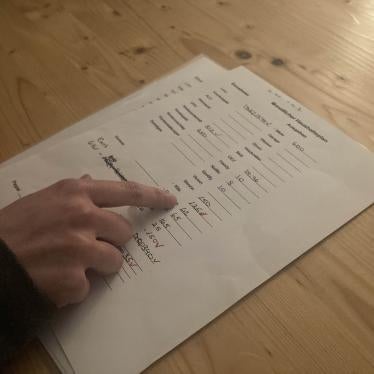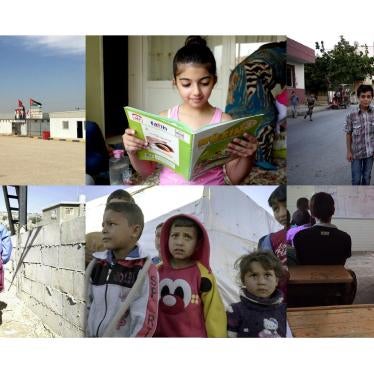We write to highlight the work of Germany on the topic of protecting students, teachers, and schools during times of armed conflict, in accordance with article 28(3) on promoting and encouraging international cooperation in matters related to education, and article 38(1) and 38(4) on ensuring respect for rules of international humanitarian law and the protection and care of children who are affected by armed conflict. We also provide some suggested recommendations on how Germany could continue to help ensure these protections.
Germany is an international champion for protecting children in situations of armed conflict, and the issue was one of Germany’s main priorities during its membership of the UN Security Council from 2011 to 2012. Germany chaired the Council's Working Group on Children and Armed Conflict, streamlining its work, leading to the adoption of a record number of concluding observations in the first half of 2011. Moreover, Germany advocated for two strong Security Council resolutions that strengthened protections for children affected by war.
In particular, during its presidency of the Security Council in July 2011, Germany introduced a resolution that made recurrent attacks on schools and hospitals in contravention of applicable international law, and recurrent attacks or threats of attacks on protected persons in relationship to schools and hospitals, criteria for parties to a conflict to be added to the so-called “list of shame” in the annex to the UN Secretary-General’s annual report on Children and Armed Conflict. Parties included on this list are liable for sanctions, and must work with the UN to end these violations before being removed from the list. Previously, parties to armed conflict could only be added to the list for attacks on schools and hospitals if they had already been listed for another violation. The new resolution also urged parties to armed conflict to “refrain from actions that impede children’s access to education,” and required the Secretary-General to “monitor and report … on the military use of schools or hospitals in contravention of international humanitarian law.” Resolution 1998 was adopted in a Security Council session chaired by former German Foreign Minister Guido Westerwelle.
This resolution is already having clear, concrete benefits on the ground for children in countries affected by armed conflict. For example, on August 14, 2013, the Chief of General Staff of the army of South Sudan (still known as the Sudan People’s Liberation Army, or SPLA), issued an order banning their forces from using schools for any military purpose. Under the order, “All SPLA … are unconditionally prohibited from … occupying schools, interfering with or disrupting school classes or activities, or using school facilities for any purposes, to include but not limited to storing equipment, billeting, or taking cover from ongoing or prospective enemy attack.” The order makes clear that an impetus for this directive was to avoid being included in the Secretary-General’s Report on Children and Armed Conflict. The order states that they did not want South Sudan to appear “alongside such groups such as the Lord’s Resistance Army (LRA), Al-Shabaab, Al-Qaida, and the Taliban,” calling such company “intolerable.”
However, Germany itself currently has no military doctrine explicitly regulating the use of schools for military purposes by its own forces, nor detailing the obligations of German forces to ensure children’s right to education, and to facilitate the proper working of all institutions devoted to the education of children.
Suggested Questions for the Government of Germany:
- Since 1999, have German forces used any schools or other education facilities for any purposes during their deployments in Afghanistan, Kosovo, Lebanon, or Mali?
Suggested Recommendations for the Government of Germany:
- Enact domestic legislation and institute military policies explicitly prohibiting armed forces from using or occupying schools, school grounds, or other education facilities in a manner that would endanger civilians or that would violate children’s right to education.
- Continue to advocate internationally for the protection of students, teachers, and schools, and support efforts to develop the Draft Lucens Guidelines for Protecting Schools and Universities from Military Use during Armed Conflict.
- When acting as a donor supporting the reconstruction and rehabilitation of damaged and destroyed schools in countries affected by armed conflict, in order to ensure the sustainability of such infrastructure investment, advocate for the adoption by the receiving country of legislation and military doctrine protecting schools from military use.







